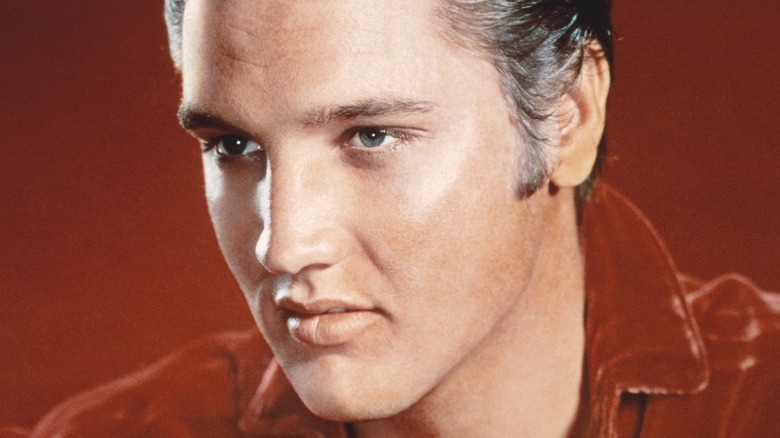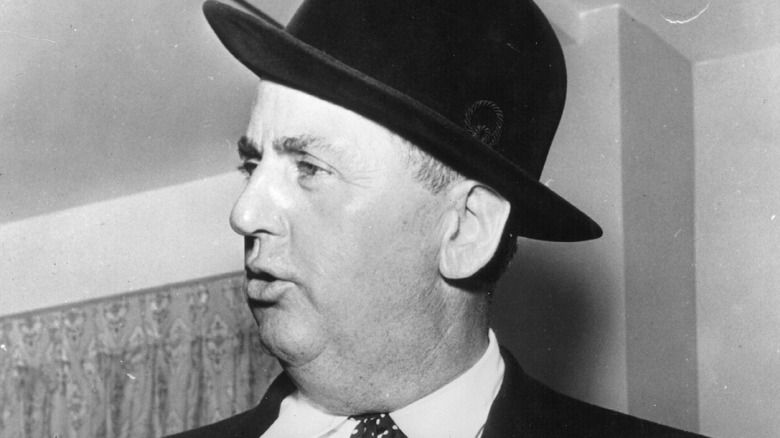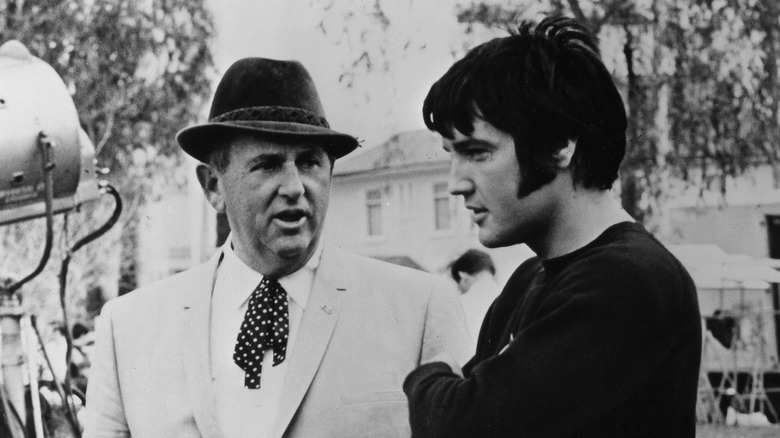Why Colonel Parker Sold 'I Hate Elvis' Buttons
Per Biography, Elvis Presley was only 42 years old when he died on August 16, 1977, and it's disheartening to think how much more he could have achieved and how many more releases he could have brought the world had he been able to survive longer. As it is, though, the megastar's legacy will live on forever.
Presley's controversial manager, Colonel Tom Parker, was instrumental in his rise, and the name "Elvis" may never have become the legend it is today without him. Like Presley himself, though, the Colonel has also proven to be a controversial figure at times. It seems that he even sold buttons bearing the legend 'I hate Elvis.' Here's why he would have wanted to create merchandise for those who hated his star attraction.
Alanna Nash, author of "The Colonel," discussed Parker's role in Elvis' career in an interview with Ear Candy. Nash stated, that without his manager, "I don't think Elvis could have competed with the British Invasion and the psychedelic fads ... he didn't understand the mindset or the culture, he disliked the idea of street drugs, and he didn't write his own music ... was Parker really savvy enough to keep him under wraps until that kind of music began to blow over? Or did he just get lucky?"
Colonel Tom Parker could find a money-making opportunity anywhere
Ultimately, there's no answer to the intriguing rhetorical question of how Elvis would've fared without Parker. What's certain, however, is that Parker was very accomplished at spotting an opportunity. The Daily Mail reports that Presley's time in the army was arranged and spun by Parker so as to keep the young musician's career ticking along and his image profitable, and Vanity Fair adds that other defining moments in his life, such as brokering a deal for $1 million per movie in Hollywood (the first deals that hit those heights), were engineered by Parker.
Parker jealously, callously protected his association with the Elvis brand. According to the Daily Mail, he claimed half the money the legend made, and sought to continue to profit from the association after the man's death. "Elvis didn't die, the body did," he reportedly said. It's unsurprising, then, that he seemed to find a way to make money even from those who despised Elvis.
According to CBC Radio, Parker was afraid that the huge appeal of Elvis wouldn't last, and so set out to milk the association for all it was worth before his star faded. Ultimately, it never really did, but the result was an enormous, unprecedented whirlwind of merchandising. Those who grew up familiar with the likes of Spice Girls lunch bags and One Direction pencil cases might be surprised to hear it, but merchandising on this scale was a brand-new concept back then.
The Elvis Presley merchandise extravaganza had something for everyone, even haters
CBC Radio states that scarves, bubblegum cards, lipsticks, and all manner of other products emblazoned with Elvis' likeness were released. This all took place in 1956 to capitalize on the success of "Love Me Tender," the King's first movie. Elvis fans, a faction that had grown to an incredible size by this point, had no shortage of must-have products to buy in honor of their hero.
There was, however, another significant group: those who hated the King's outrageous dancing and who thought he stood for something new and dangerous. As Express reports, a 1957 California Concert Tour performance of "Hound Dog" was considered so scandalous that the Deputy Police chief ordered him to clean up his dance moves or be on the business end of an obscenity charge. Elvis Presley haters were a significant group too, but how to sell them merchandise too? Parker had the answer, CBC Radio reports: simple badges that bore such legends as 'I Hate Elvis' and 'Elvis is a jerk.'
By the end of 1956, the first year of the Elvis Presley merchandise drive, $22 million of Elvis souvenirs had been bought, according to the Wall Street Journal (via Graceland). Parker's inspired Elvis-hater badges surely didn't make up very much of that total, but they certainly contributed to it.


